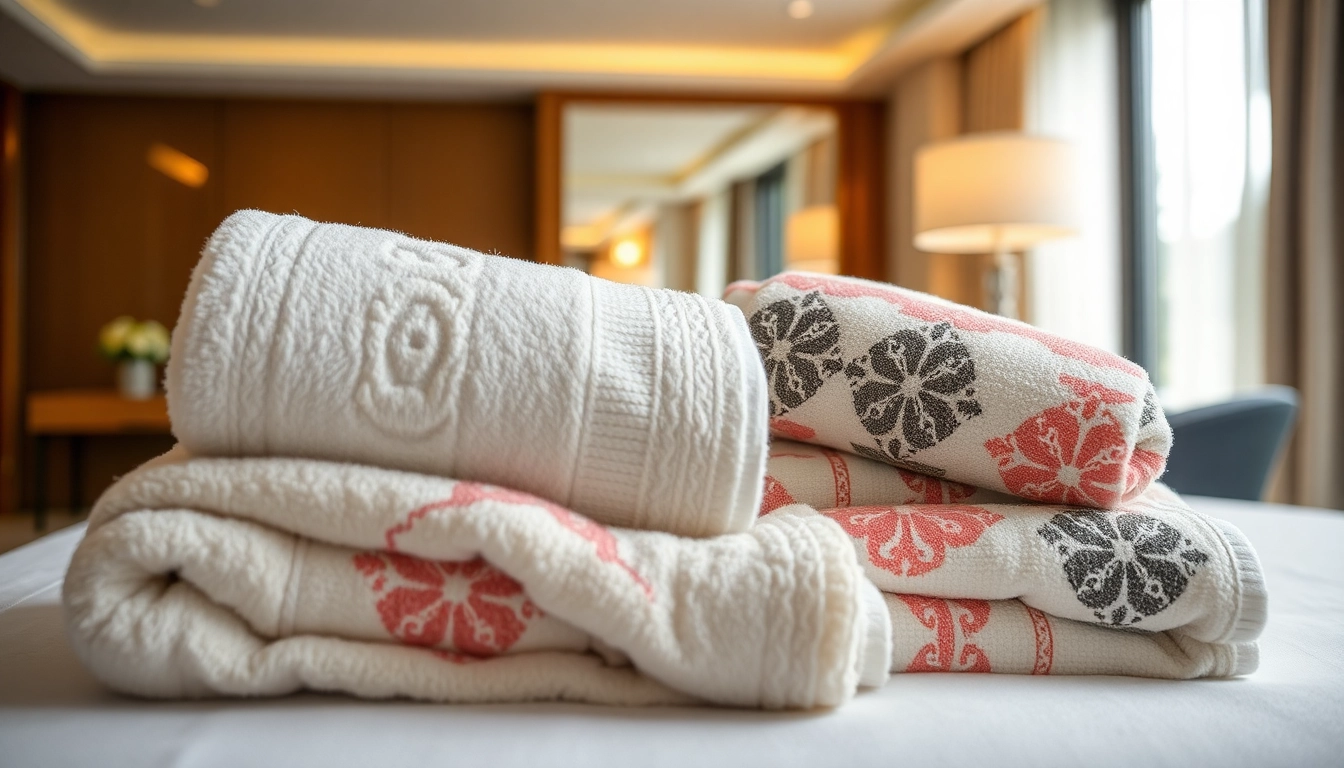Understanding the European Towels Manufacturing Landscape
The European textile industry has long been recognized for its emphasis on quality, sustainability, and innovation. Among various textile products, towels hold a prominent position, catering to both domestic markets and a thriving export sector. For businesses seeking premium, reliable, and sustainable options, identifying a Towels manufacturer in Europe is a strategic step that ensures product excellence and aligns with evolving consumer expectations. This article delves into the current European towels manufacturing landscape, highlighting key players, emerging trends, and practical guidance on selecting a suitable manufacturer to elevate your brand or business.
Market Overview and Key Players
Europe’s towel manufacturing sector is characterized by a diverse array of companies ranging from small artisan producers to large-scale industrial manufacturers. Prominent among these are firms like Kapatex s.r.o., a leading Czech manufacturer known for embroidered terry towels, and Italian stalwarts such as Almatex S.R.L., which has been crafting luxurious Italian cotton towels since 1948. The industry benefits from a strong tradition of craftsmanship, precision, and a growing focus on eco-conscious manufacturing.
Wholesale giants like Oasis Towels and Bursali Towels have established extensive European distribution networks, supplying hotels, spas, and retail outlets with high-quality bulk products. Additionally, countries such as Portugal and Sweden have earned reputations for high-end towel production, emphasizing sustainability, innovative textiles, and elegant design. These companies not only fulfill functional requirements but also serve as a canvas for branding and customization.
Trends in Eco-Friendly and Sustainable Towels
Sustainability has become a non-negotiable aspect of modern towel production. European manufacturers are at the forefront, adopting environmentally friendly practices, sustainable raw materials, and eco-certifications such as GOTS (Global Organic Textile Standard), OEKO-TEX®, and EMAS. For example, Swedish companies like Ekelund offer organic towels crafted from 100% organic cotton and linen, woven with sustainable processes.
Consumers are increasingly seeking products made with nature in mind. Consequently, manufacturers are investing in eco-friendly dyes, water-saving manufacturing techniques, and biodegradable packaging. Brands that prioritize sustainability not only reduce their ecological footprint but also enhance their market appeal, especially among eco-conscious consumers.
Regional Advantages and Manufacturing Hubs
Europe benefits from several well-established textile hubs, each offering unique advantages. Italy, renowned for its textile craftsmanship, produces some of the world’s most luxurious towels, characterized by high thread counts, plush textures, and sophisticated designs. Portugal combines a rich textile heritage with modern manufacturing, making it a top source of high-quality bath towels that blend tradition and innovation.
Eastern European countries, such as the Czech Republic and Hungary, offer cost-effective production options without compromising quality, making them attractive for bulk orders. Sweden and Scandinavia emphasize sustainability, innovation, and design, appealing to premium market segments. Understanding these regional strengths helps businesses make informed decisions aligned with their brand positioning and budget parameters.
How to Choose a Reliable Towels Manufacturer in Europe
Assessing Quality Standards and Certifications
Quality assurance begins with certifications. Reliable manufacturers in Europe adhere to strict standards such as GOTS for organic textiles, OEKO-TEX® for chemical safety, and ISO14001 for environmental management. Verifying these certifications provides peace of mind regarding product safety, sustainability, and consistency.
Product Range and Customization Options
A trustworthy manufacturer offers a comprehensive product range—including bath towels, beach towels, spa towels, and bathrobes—with options for customization in size, color, embroidery, and branding. Customized towels enhance brand identity and create a distinctive market presence.
Supply Chain and Lead Time Considerations
Efficient supply chains and transparent lead times are crucial to meeting market demand and launching new collections. Established European manufacturers typically maintain reliable logistics, facilitate quicker turnaround times, and possess contingency plans for disruptions. Engaging with a manufacturer with a proven track record reduces delays and inventory challenges.
Design and Innovation in European Towel Production
Latest Textile Technologies and Materials
Advancements such as innovative terry weaving techniques, high-performance microfiber blends, and organic cotton fibers enhance towel durability, softness, and absorbency. European manufacturers incorporate cutting-edge machinery and R&D to develop textiles that meet the highest standards of quality and comfort.
Design Trends and Brand Alignment
Current design trends favor minimalistic patterns, subtle textures, and eco-friendly dyes. Brands focus on creating cohesive collections that reflect their identity, utilizing innovative prints, embroidery, and fabric treatments. Working closely with manufacturers allows for the development of bespoke designs aligned with your brand ethos.
Incorporating Customer Feedback into Product Development
Leading manufacturers actively solicit customer feedback to refine product offerings. This iterative process results in towels that better meet end-user needs, enhancing satisfaction and loyalty. Collaborations that prioritize consumer insights often lead to breakthrough innovations and competitive advantages.
Partnering with a Towels Manufacturer in Europe for Your Business
Establishing Effective Communication and Collaboration
Clear, open channels of communication foster smoother collaborations. Regular updates, prototype reviews, and feedback loops ensure products meet specifications. Consider manufacturers who offer dedicated account managers and multilingual support to bridge potential language barriers.
Cost Optimization and Bulk Manufacturing Benefits
European manufacturers often provide economies of scale, enabling cost-effective bulk orders. Negotiating favorable terms, volume discounts, and flexible minimum order quantities can further optimize budgets while maintaining quality standards.
Leveraging European Quality for Brand Differentiation
Positioning your brand around European-origin products conveys prestige, craftsmanship, and environmental responsibility. Highlighting these attributes in marketing strategies elevates brand perception and attracts discerning consumers.
Performance Metrics and Future Trends in European Towels Manufacturing
Measuring Product Quality and Customer Satisfaction
Implement quality control protocols, such as sample testing, durability assessments, and customer feedback analysis, to gauge product performance. Use key metrics like defect rates, repeat orders, and customer reviews to guide continuous improvement.
Adoption of Sustainable Practices and Certifications
Monitor and document sustainability initiatives, aiming for certifications like GOTS, OEKO-TEX®, and ISO14001. Transparent reporting and third-party audits reinforce credibility and support marketing efforts.
Emerging Markets and Expansion Opportunities
With growing global interest in eco-friendly and luxury textiles, European towel manufacturers are expanding into markets in Asia, the Middle East, and the Americas. Building strategic partnerships and ensuring compliance with international standards can unlock new revenue streams.

